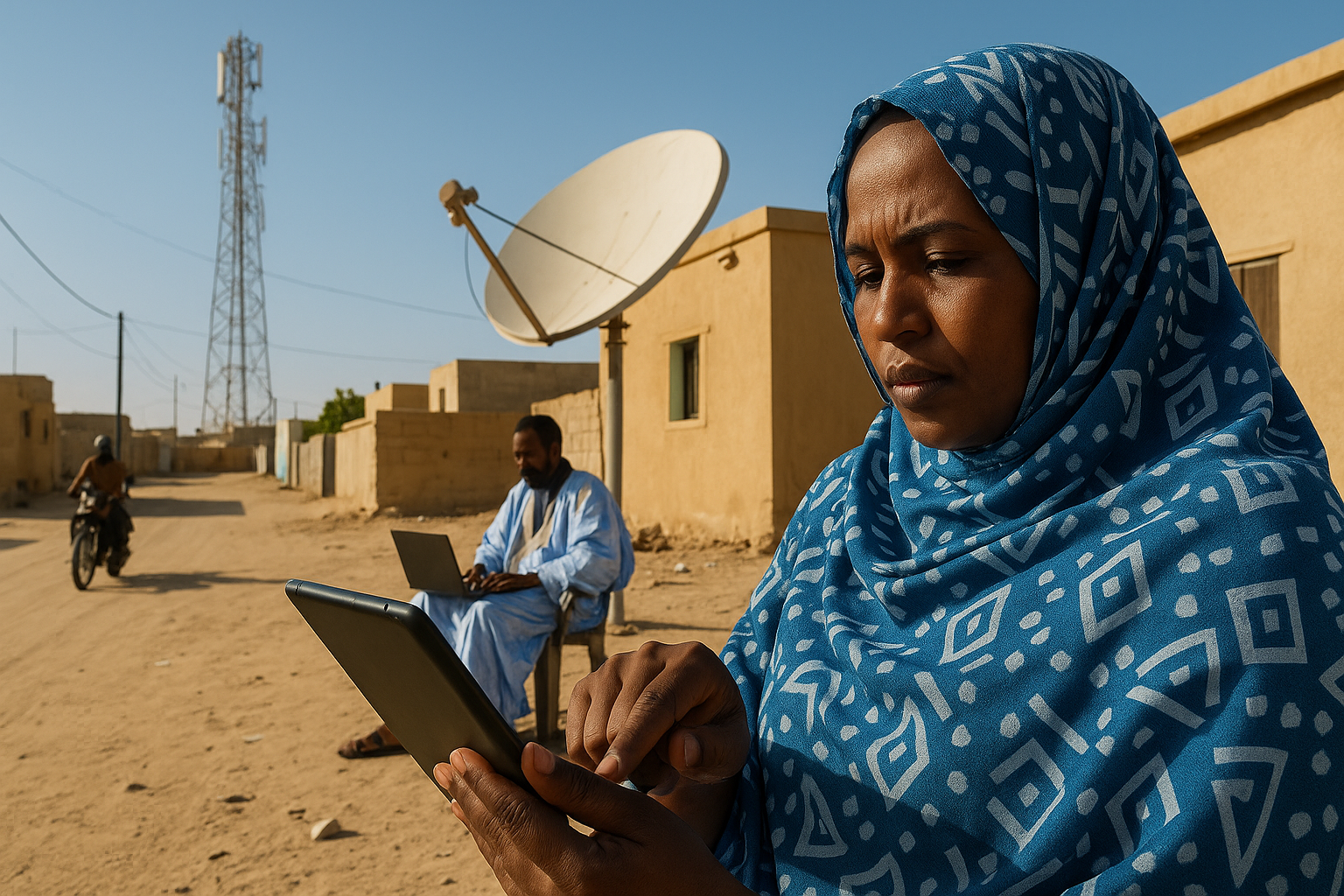Digital Mauritania 2030: World Bank’s Blueprint for Inclusive and Resilient Growth
The World Bank’s 2025 assessment highlights Mauritania’s rapid digital progress in infrastructure, public services, and financial inclusion but warns of persistent fragmentation, regulatory gaps, and skill shortages. It offers a roadmap for inclusive, resilient digital transformation by 2030 through coordinated governance, investment, and innovation.

The Mauritania Digital Economy Country Assessment, published in 2025 by the World Bank Group as part of the Digital Economy for Africa (DE4A) initiative, delivers a comprehensive portrait of the country’s digital transformation. The report, researched and authored by teams from the World Bank and the International Finance Corporation (IFC), in collaboration with national institutions like the Ministry of Digital Transformation and Modernization of Administration (MTNMA) and the National Digital Agency (AN-ETAT), highlights how Mauritania has positioned itself at the gateway of a digital future. Drawing on consultations with public and private stakeholders and benchmarking against global best practices, the assessment identifies both the progress made and the critical gaps that need to be addressed to ensure inclusive, scalable, and sustainable digital development.
Building the Backbone: Progress in Infrastructure, But Gaps Remain
Mauritania has made remarkable progress in digital infrastructure over the past decade, with internet penetration increasing from 2 percent in 2012 to 80 percent by 2024. This was largely due to its connection to the Africa Coast to Europe (ACE) submarine cable, which reduced broadband prices and enabled wider access. Yet, the country’s heavy reliance on this single cable was exposed during a June 2024 outage that brought nearly all internet traffic to a halt. New connections like the EllaLink submarine cable and Maroc Telecom’s West Africa Cable could enhance resilience, but bureaucratic and political bottlenecks have delayed their activation. Internally, a 1,710-kilometer fiber-optic backbone was laid under the WARCIP project, and utility providers like Rimatel have added their infrastructure. However, rural areas remain underserved, and the digital divide persists. With mobile broadband services expanding through Moov Mauritel, Mattel, and Chinguitel, the need for low-cost, high-speed internet in remote regions has sparked interest in satellite connectivity and public-private partnerships to bridge the last mile.
Fragmented Public Platforms Undermine Governance Efficiency
Despite the creation of more than 150 digital public platforms, Mauritania’s digital governance remains fragmented. A lack of interoperability, standardization, and oversight has led to duplications, inconsistent service quality, and increased operational costs. Some platforms like Khidmaty, which allows citizens to access criminal records and traffic violation data online, are notable successes, but many others lack user adoption or strategic alignment. Back-office systems such as RACHAD 2 and JIBAYA have modernized financial and tax operations, but integration with other platforms remains limited. The standout in this domain is the SIRAGE education management system, which digitally connects nearly all schools, tracking teacher attendance, student progress, and resource allocation. In contrast, sectors such as healthcare and justice have pilot programs without clear scaling strategies. The creation of AN-ETAT has improved operational capacity, but with only 20 staff members and modest funding, its impact is constrained. Laws on data protection, digital identity, and cybersecurity are still evolving, and operationalizing the national digital security strategy remains a work in progress.
A Nascent Digital Financial Ecosystem Poised for Expansion
Digital financial services in Mauritania are growing but not yet fully mature. The National Financial Inclusion Strategy (2023–2028) has laid the foundation for expanding financial access, especially for underserved groups. However, uptake of mobile money and digital banking remains low, with significant barriers around trust, affordability, and product design. The Central Bank is advancing efforts to launch a fast payment system, streamline regulations, and encourage fintech development, but the ecosystem suffers from limited interoperability and real-time data access. Fintech startups face difficulties scaling due to capital constraints and unclear regulatory pathways. While financial literacy programs have begun, more tailored interventions are needed to reach rural communities and women, who remain disproportionately excluded. If well-coordinated, digital finance could unlock entrepreneurship, enable e-commerce, and improve resilience in times of crisis.
Skills and Innovation: The Missing Links in the Digital Chain
Perhaps the most glaring gap identified by the report is the underdeveloped state of digital skills in Mauritania. The education system lacks a national digital competency framework, and technical training programs are sparse and unevenly distributed. Many schools, particularly in rural areas, lack basic infrastructure like electricity, let alone broadband. Gender disparities in digital literacy and access are also significant. Although institutions such as SUPNUM and local innovation hubs are emerging, their reach and curriculum remain limited. The government has initiated some programs to train civil servants and IT professionals, but scaling these to meet private sector needs is an urgent priority. The report urges the creation of lifelong learning pathways, stronger public-private collaboration in curriculum design, and better support for women and youth in the digital workforce.
A Roadmap to 2030: Governance, Investment, and Inclusion
The report concludes by outlining five strategic priorities for the Digital Transformation Agenda 2030. These include establishing centralized governance to streamline fragmented digital initiatives, diversifying international bandwidth to strengthen internet resilience, closing regulatory gaps in digital finance and data protection, promoting digital skills development, and creating sustainable investment models through public-private partnerships. Budget constraints and institutional fragmentation remain core obstacles, but with strong political will and international support, Mauritania has the tools to shift from fragmented experimentation to an integrated, inclusive digital ecosystem. If implemented effectively, this roadmap could not only modernize public services and stimulate private innovation but also position Mauritania as a regional leader in West Africa’s digital transformation. The country’s next digital chapter now depends on turning these recommendations into action.
- FIRST PUBLISHED IN:
- Devdiscourse
ALSO READ
Unlocking Private Investment: The Role of World Bank Guarantees in Global Development
Eutrophication Crisis in the Black Sea: World Bank Urges Unified Regional Action
World Bank's Strategic Shift: Climate, Gender, and Regional Focus
World Bank's Continued Commitment to Climate Change and Gender in the Pacific
World Bank Review Urges Deeper Strategy in IFC’s Generic Drug Sector Investments










